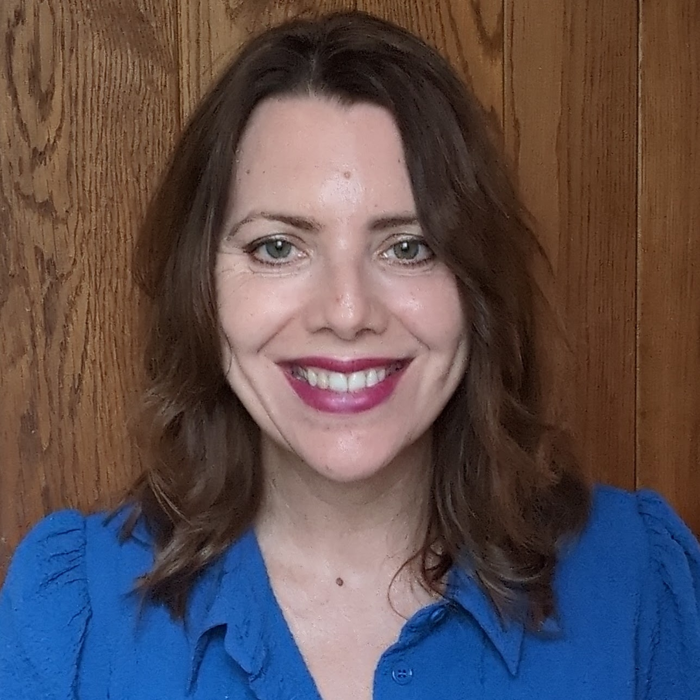The Responsive Voice: A dialogic approach to actor voice training
Tuesday 1st October 2024, 5:00 PM - 7:00 PM (London Time)
This course will apply key insights from research on natural conversation to voice and dialect coaching for actors. Current actor voice training approaches the voice as the product of an individual speaker. The voice is seen as expressing inner truths and emotions, and there is a strong focus on learning lines and soliloquies. However, some voice coaches have called for ‘a genuine, dynamic, and spontaneous responsiveness as opposed to learning how to say lines without really listening or reacting to others’ (Gutekunst & Gillett 2014:4). This aligns with findings from research on natural talk. Here, it has been shown that the voice is a tool for dialogue rather than only for monologue.
The course will start by introducing the dialogic functions of the voice as it is used in real-life conversation. In natural talk, speakers vocally align with each other, for example, by mirroring each other’s pitch or speech tempo. Here, the voice - or ‘prosody’ - manages interaction with other people rather than revealing an emotional state. Aligning with others frequently leads to prosody that is different from prosody produced in isolation. These insights have not yet been applied to actor voice training, where they have the potential to transform dialogue coaching.
The course will give an overview of how recent voice training approaches teach voice/ prosody and will outline areas where the prosody of acting may differ from that of natural conversation. We will propose ways in which the prosody of natural talk can be meaningfully applied to the work of actors, acting students, and voice coaches, with many examples and exercises that students can take part in if they would like to.
🏷️ Price £30 (UK VAT inclusive)
🎥 Recording automatically sent to all who book (even if you cannot attend live)
▶️ Rewatch as many times as you like
📜 Certificate of attendance available
Beatrice Szczepek Reed
Beatrice Szczepek Reed is Professor of Linguistics at King’s College London, where she is the Co-Director of the Centre for Language, Discourse and Communication. Beatrice studies spoken language, particularly the phonetics and phonology of natural conversation.
Anne Whitaker
Anne Whitaker is a California transplant now based in London. Her work as a voice coach spans professional coaching and conservatoire training programs including The Royal Central School for Speech and Drama, Mountview, and The Globe.

Attend this course for as little as £22 as part of the Voice Professional Training CPD Award Scheme.
Learn MoreSorry, this is an archived short course...
We have plenty of upcoming short courses coming soon. See details of some of them below or look at the full list of short courses.

Tuesday 13th January 2026
5:00 PM - 6:30 PM
Tuesday 20th January 2026
5:00 PM - 6:30 PM
Tuesday 27th January 2026
5:00 PM - 6:30 PM
Tuesday 3rd February 2026
5:00 PM - 6:30 PM
Tuesday 10th February 2026
5:00 PM - 6:30 PM
(London Time)
Introduction to Postgraduate Academic Skills - Join Live!

Debbie Winter
Are you ready to elevate your academic journey? Hosted by our very own Debbie Winter, join our comprehensive Introduction to Academic Skills course, designed to equip you with essential tools and strategies for success in higher education. Perfect for bridging the gap between undergraduate and postgraduate study, this course offers a pathway to our full MA for students without an existing degree. We offer both live, interactive sessions and standalone, pre-recorded content.

Thursday 15th January 2026
5:00 PM - 7:00 PM
Thursday 22nd January 2026
5:00 PM - 7:00 PM
Thursday 29th January 2026
5:00 PM - 7:00 PM
Thursday 5th February 2026
5:00 PM - 7:00 PM
Thursday 12th February 2026
5:00 PM - 7:00 PM
(London Time)
Trauma-Sensitive Voice Professional Certificate with Dr Elisa Monti

Dr Elisa Monti
Updated for 2026, this five-part certificate course is designed to help participants learn the theory and practice of trauma-sensitive approaches. The concepts and activities included are tailored to meet the needs of voice specialists who want to acquire more specific tools to navigate the space with their students and colleagues.

Monday 9th February 2026
5:00 PM - 7:00 PM
(London Time)
Certificate in Applied Voice Pedagogy with Adam Roberts

Adam Roberts
Spring Immersive - live and interactive learning! This 12-week online programme is designed for voice professionals committed to deepening applied voice pedagogy skills and advancing professional practice. The course offers a rich environment to reflect on your teaching philosophy and develop applied pedagogical techniques. It is ideal for voice teachers, coaches, therapists, and performers seeking to bridge foundational knowledge with practical, student-centered applications.

